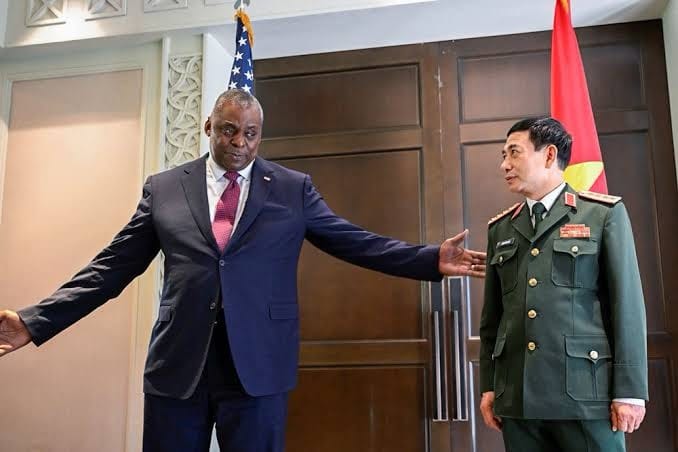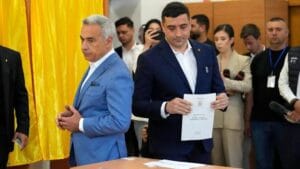US, China military chiefs hold rare talks to reduce tensions amid rising risks in Asia-Pacific
In a significant step toward managing the escalating tensions in the Asia-Pacific region, senior US and Chinese military commanders held rare talks on Tuesday aimed at reducing the risk of miscalculation in a volatile geopolitical landscape.

In a significant step toward managing the escalating tensions in the Asia-Pacific region, senior US and Chinese military commanders held rare talks on Tuesday aimed at reducing the risk of miscalculation in a volatile geopolitical landscape.
Admiral Samuel Paparo, head of the US Indo-Pacific Command, and General Wu Yanan, commander of China’s People’s Liberation Army Southern Theater, engaged in a video conference call—the first of its kind in more than two years.
This long-anticipated conversation comes as the two global powers seek to restore military communication channels severed by Beijing in August 2022 after then-House Speaker Nancy Pelosi’s controversial visit to Taiwan, the self-governed island that China claims as its own.
The call marked a step forward in the gradual resumption of high-level military dialogue between the US and China, following last month’s visit to Beijing by White House National Security Adviser Jake Sullivan. During that visit, both sides agreed to hold commander-level talks to address the increasing tensions, particularly over Chinese military activities in the South China Sea and its stance on Taiwan.
Also Read: Report accuses Andrew Cuomo of mishandling nursing Home policies, calls for accountability
Admiral Paparo underscored the importance of keeping lines of communication open, stating it was crucial to “clarify intent and reduce the risk of misperception or miscalculation,” according to a White House readout. Paparo also addressed “several recent PLA unsafe interactions with US allies,” urging China to “reconsider its use of dangerous, coercive, and potentially escalatory tactics in the South China Sea and beyond.”
In response, Chinese state media issued a brief statement acknowledging the talks and stating that “the two sides exchanged in-depth views on issues of common concern,” without providing further details.
This diplomatic milestone comes as tensions in the South China Sea are at an all-time high. Over recent months, Chinese and Philippine vessels have been locked in increasingly aggressive confrontations, though none have yet resulted in lethal outcomes. Beijing claims nearly the entire South China Sea, in defiance of international rulings, while the US has reiterated its commitment to defending the Philippines, a key regional ally, under its mutual defense treaty.
Both countries are also grappling with a broader range of frictions, including China’s close relationship with Russia amid the war in Ukraine and Washington’s growing partnerships with regional allies to contain Chinese influence.
The talks between Paparo and Wu represent a rare moment of direct communication between the two militaries operating in the highly sensitive Indo-Pacific and Southern theaters. The call follows recent efforts to restore military dialogue at the highest levels, including a meeting between US President Joe Biden and Chinese President Xi Jinping in November, as well as talks between their defense chiefs at a summit in Singapore earlier this year.
While Tuesday’s talks are viewed as a constructive development, analysts caution that much more work is needed to ensure sustained communication and avoid a potential flashpoint in the region. Miscalculations, particularly in the South China Sea, could easily spiral into a larger conflict involving the world’s two largest economies.
As both sides continue to navigate these complex issues, the resumption of military dialogue is a cautious but necessary step toward mitigating the growing risks of conflict in the Asia-Pacific.










